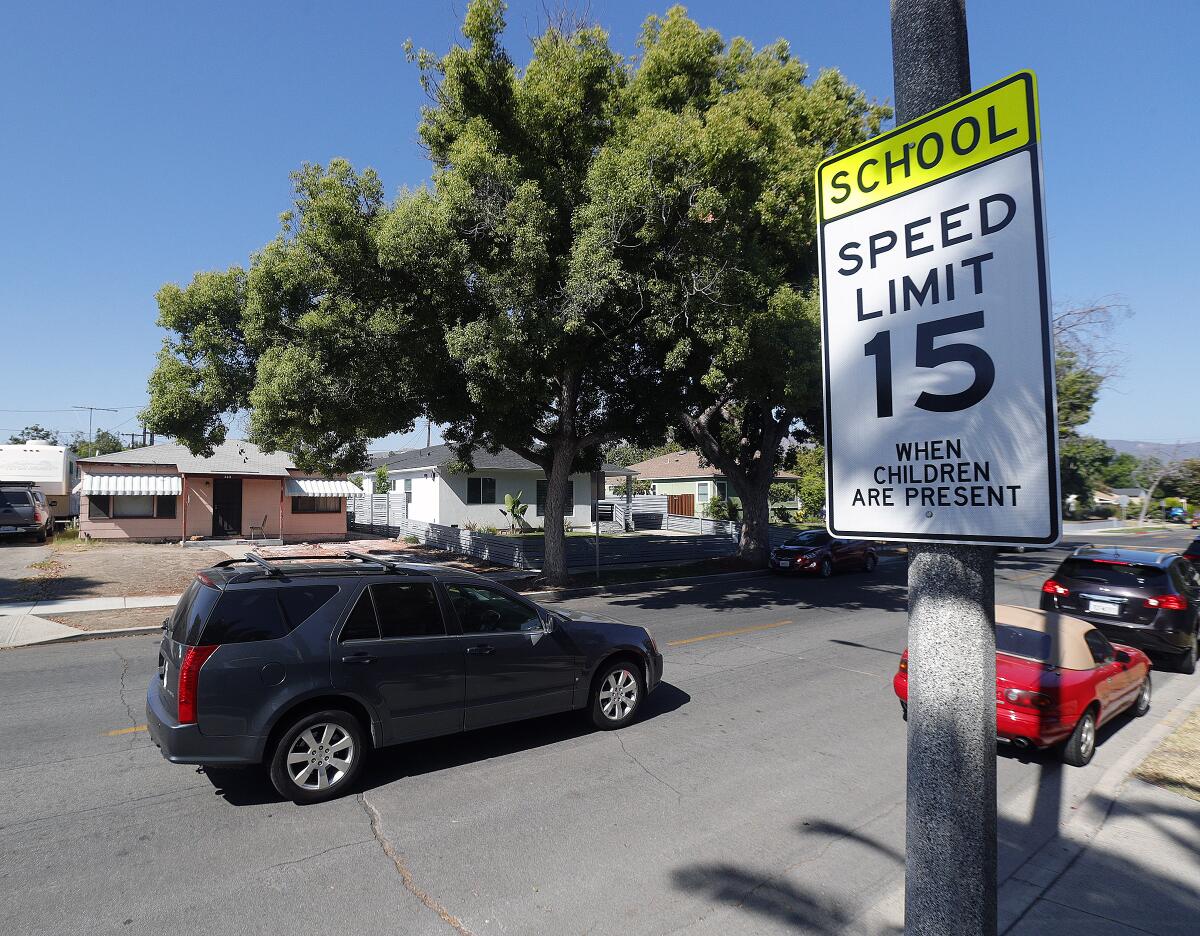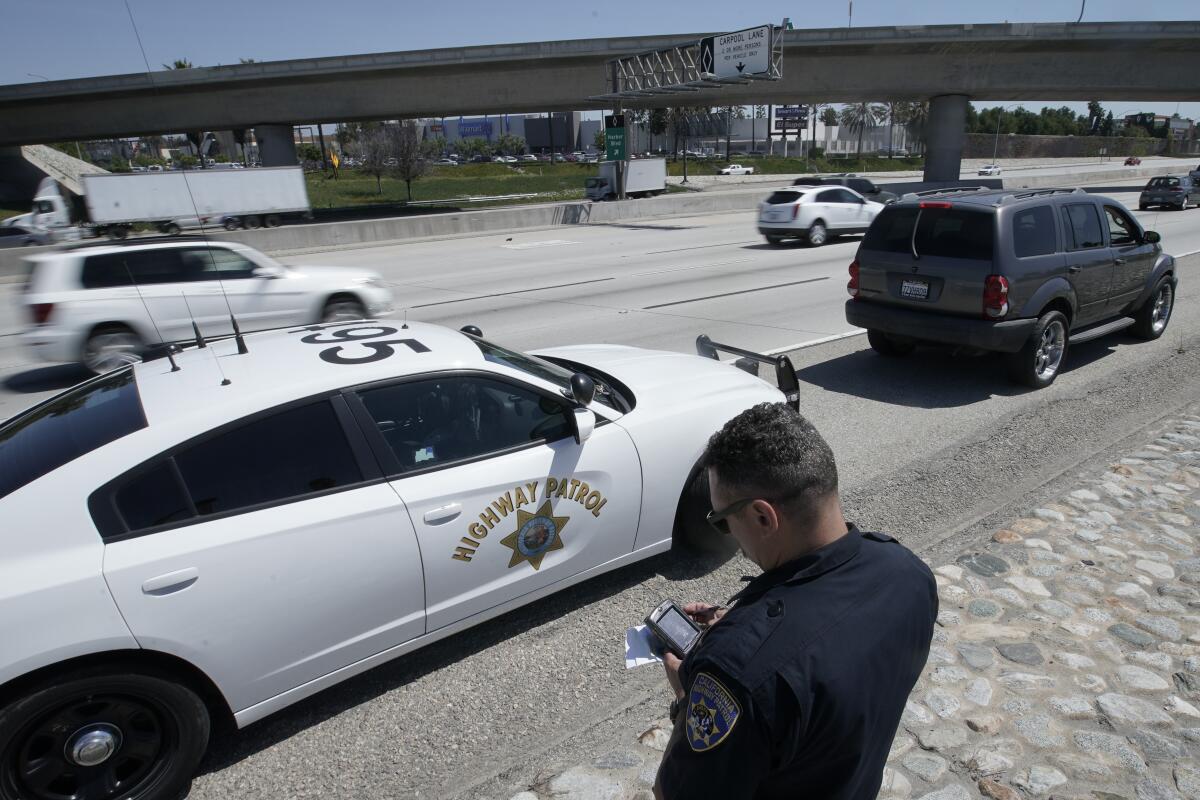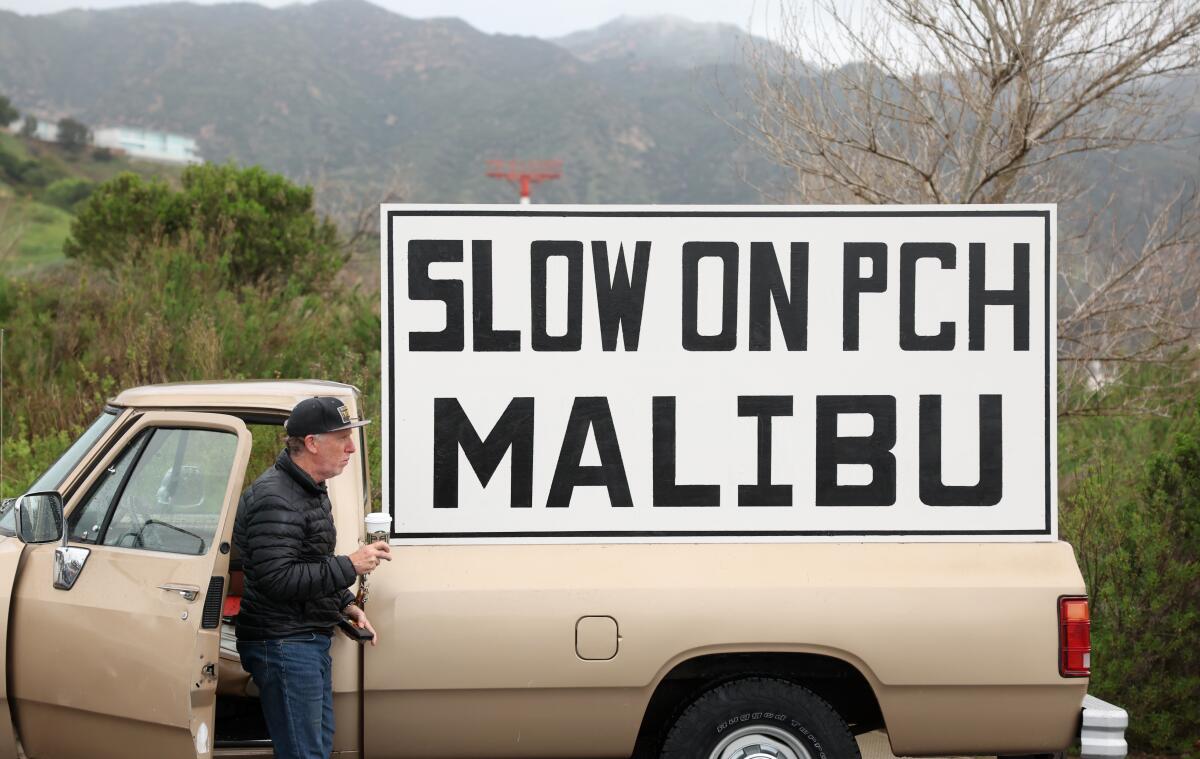It's either an efficient safety feature or an assault on drivers' liberty, depending who you ask.

www.latimes.com
Lifesaver or freedom killer? Gov. Newsom will decide if new cars give speed alerts
(Tim Berger / Burbank Leader)
By
Ryan Fonseca Staff Writer
Sept. 5, 2024 6:30 AM PT
Good morning. It’s
Thursday, Sept. 5. Here’s what you need to know to start your day.
Lifesaver or freedom killer? Gov. Newsom will decide if new cars give speed alerts
Imagine you’re running an errand in your car when you hear a beep. You glance at your dash display and see that you’re exceeding the speed limit. Do you ease off the gas pedal or just ignore the warning and keep speeding?
More California drivers could face that choice if Gov. Gavin Newsom signs a bill state lawmakers passed last week.
Senate Bill 961 requires that new cars and trucks come equipped with a warning system alerting drivers any time they travel more than 10 miles over the speed limit.
“This would mark the first law of its kind in the U.S. and would rely on existing ‘intelligent speed adaptation’ technology to try to curtail traffic fatalities and injuries,” my colleague Colleen Shalby
reported this week.
The bill would mandate the technology, also called intelligent speed assistance (ISA), in new vehicles sold in the state by 2030. Several vehicle types would be exempt, including emergency vehicles, motorcycles and cars that already have built-in GPS or a front-facing camera.
State Sen. Scott Wiener (D-San Francisco), who authored the bill, said it’s one part of a broader effort to curb traffic violence, which has been
surging in California.
California Highway Patrol Officer Troy Christensen stops a motorist who was suspected of speeding on Interstate 5 in Anaheim.
(Chris Carlson / Associated Press)
Over the last five years, more than 18,700 people died in traffic crashes, according to state data
compiled by researchers at UC Berkeley. Tens of thousands more were seriously injured. Speed-related crashes
account for nearly a third of traffic deaths across the nation each year.
“It doesn’t have to be this way,” Wiener told me this week. “We know how to make our roads safer.”
Iterations of the technology have been
around for years. Maybe you’ve noticed speed limits displayed when you’re using Google or Apple’s navigation apps. Waze has a feature for users to
set up speeding alerts. Toyota is including the technology in all its new models next year. As of July, all new cars sold in European Union countries are
required to have ISA technology.
The bill also ignited yet another ideological battle between those championing individual freedom and those advocating for collective public safety. So let’s unpack it.
From speed governors to passive warnings
Wiener’s initial bill called for mandated speed governors in new cars, which physically hinder a vehicle from going more than 10 mph over a posted speed limit.
But shocker: A policy that would force drivers to slow down — especially in California — was not popular. Wiener said it quickly became clear his bill would not gain momentum, so he opted for a “lighter touch.”
His amended bill describes the alert as a “brief, one-time visual and audio signal” that activates when a car exceeds the set threshold, rather than a constant beeping.
“It provides people with information instead of forcing them to stay below a certain speed,” Wiener said. He believes the alert will be enough to slow down most drivers, many of whom may not realize how fast they’re going — especially in newer cars that perform more quietly and smoothly.
Fireball Tim Lawrence arrives for another Ghost Tire memorial in February, bringing the number to 59, in honor of every person killed along Pacific Coast Highway in Malibu since 2010.
(Wally Skalij / Los Angeles Times)
Damian Kevitt, executive director of
Streets Are for Everyone, is a longtime safety advocate based in Los Angeles who co-sponsored the legislation. He and fellow supporters worry that Newsom will veto the bill because of pressure from the auto industry, which he noted has
a long track record of opposing safety regulations.
“As soon as you have a single state that starts doing this, the automobile industry is going to be pushing to get federal legislation,” he said. “We’re really looking at something that would help improve [safety] across the entire U.S.”
Why the auto industry and Republican lawmakers oppose the bill
The
Alliance for Automotive Innovation, composed of major automakers, vehicle component suppliers and other auto industry players, opposes SB 961, contending that it should be left to the federal government to decide.
“Automakers developed technologies like intelligent speed assist to help improve roadway safety, but the right forum to debate new vehicle technology requirements is with the federal regulator,” an alliance spokesperson said in a statement. “We can’t have 50 states setting 50 competing sets of vehicle technology and safety rules.”
That regulator is the National Highway Traffic Safety Administration, or NHTSA, which is known to
move slowly in implementing vehicle safety rules. On the agency’s website, officials note that intelligent speed assistance “has been found to lower speeding among drivers using the systems,” citing research in Europe and the U.S. from a decade ago.
“Based on relationships between speed and safety, substantial crash savings are expected,”
the agency wrote. But NHTSA has not yet started on any regulatory framework.
In an email, an agency spokesperson said NHTSA has proposed adding ISA to its
5-Star Safety Ratings program and is “initiating new research this year … specifically focusing on ISA capabilities and limitations, as well as consumer acceptance of the technology.”
The bill did not receive any Republican support, with some members in the Senate and Assembly contending that the state should leave the decision to NHTSA.
But they made other arguments against the safety feature, including:
GOP lawmakers also cited concerns about what it would cost car buyers if technology became mandated in new cars. And there was the common accusation levied in the face of many proposed government regulations: that requiring the technology would be an assault on personal freedom.
“This is just another step towards making California a nanny state,” Assemblymember James Gallagher (R-Yuba City) said. “This bill is about control. It’s not about safety.”
Let’s check some of those arguments
First, audible alerts in cars are not some strange new thing. Many cars let us know if our seat belts aren’t fastened or if our door is ajar or if we’re too close to an object while backing up. These features are designed to encourage safer behavior and avoid collisions.
As for the claim that safety regulations are freedom killers, it’s worth noting that similar arguments were made when regulators moved to require
seat belts and airbags in new cars — and when states began to crack down on
drunk driving.
We know
seat belts and airbags save lives. Criminalizing drunk driving
saves lives. Safety advocates say the research is clear that this feature will do the same.
“There’s freedom, but there’s also the right to live,” Kevitt said. “Right now, dangerous driving is costing people that freedom.”
And although some lawmakers cited concerns about the financial consequences for consumers, there’s another cost that didn’t come up. Traffic violence is estimated to cost Californians
over $29 billion annually in the form of medical expenses, property damage, lost productivity, insurance payouts and more. That’s according to a
NHTSA report from 2019.
To be clear: There’s no single magic bullet that will stop people from driving dangerously and hurting or killing others with their cars. Traffic safety experts say it’ll take dramatic shifts in street design, enforcement and vehicle regulations to meaningfully reduce the carnage on our roads.


















